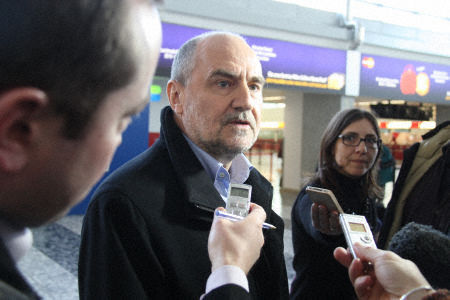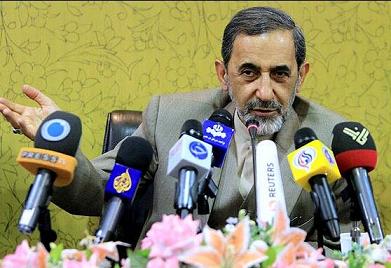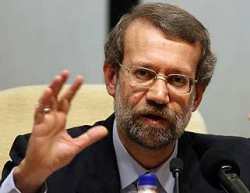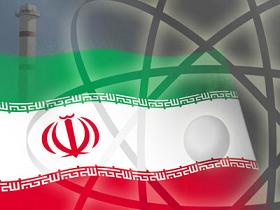A team from the United Nations atomic agency started on Sunday a three-day visit to Iran in order to discuss the Islamic Republic’s nuclear program.
A team from the United Nations atomic age
 |
| Herman Nackaerts talking to reporters |
ncy started on Sunday a three-day visit to Iran in order to discuss the Islamic Republic’s nuclear program.
The team is likely to meet with Iran's chief nuclear negotiator Saedi Jalili and atomic chief Fereydoun Abbasi.
However, there will be no meeting with Foreign Minister Ali-Akbar Salehi, who left Tehran earlier on Saturday to attend the African Union summit in Ethiopia.
"In particular we hope that Iran will engage with us on the possible military dimensions of Iran's nuclear program," Herman Nackaerts, the IAEA's chief inspector leading the delegation, told reporters in Vienna as he left.
"We are looking forward to the start of a dialogue, a dialogue that is overdue since very long," he said.
The Islamic Republic has said it would co-operate with the IAEA team but indicated it would not give up uranium enrichment, which it considere d a sovereign right.
d a sovereign right.
"We have always been open with regards to our nuclear issues, and the IAEA team coming to Iran can make the necessary inspections," Ali-Akbar Velayati, advisor to Supreme Leader Ayatollah Sayyed Ali Khamenei, told the ISNA news agency.
"We will, however, not withdraw from our nuclear rights as we have constantly acted within international regulations and in line with the laws of the non-proliferation treaty," Velayati said.
 For his part, Iran's parliamentary speaker, Ali Larijani, called the visit a "test" for the UN agency, according to the website of the official IRIB state broadcaster.
For his part, Iran's parliamentary speaker, Ali Larijani, called the visit a "test" for the UN agency, according to the website of the official IRIB state broadcaster.
If the IAEA officials “were professional" then "the path for cooperation will open up," Larijani said on Sunday.
"But if they deviate and become a tool, then the Islamic republic will be forced to reflect and consider a new framework" for cooperation, he added.
Iran confirms its program is for peaceful ends only insisting that is its right under the Nuclear Nonproliferation Treaty (NPT) while Israel, which is believed to be the sole nuclear power in the Middle East with more than 200 nuclear heads, is not a signatory for this treaty.
